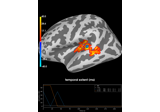mne.epochs.equalize_epoch_counts#
- mne.epochs.equalize_epoch_counts(epochs_list, method='mintime', *, random_state=None)[source]#
Equalize the number of trials in multiple Epochs or EpochsTFR instances.
- Parameters:
- epochs_list
listofEpochsinstances The Epochs instances to equalize trial counts for.
- method
'truncate'|'mintime'|'random' If
'truncate', events will be truncated from the end of each event list. If'mintime', timing differences between each event list will be minimized. If'random', events will be randomly selected from each event list.New in v1.8.
- random_state
None|int| instance ofRandomState A seed for the NumPy random number generator (RNG). If
None(default), the seed will be obtained from the operating system (seeRandomStatefor details), meaning it will most likely produce different output every time this function or method is run. To achieve reproducible results, pass a value here to explicitly initialize the RNG with a defined state. Used only ifmethod='random'.
- epochs_list
Notes
The method
'mintime'tries to make the remaining epochs occurring as close as possible in time. This method is motivated by the possibility that if there happened to be some time-varying (like on the scale of minutes) noise characteristics during a recording, they could be compensated for (to some extent) in the equalization process. This method thus seeks to reduce any of those effects by minimizing the differences in the times of the events in the two sets of epochs. For example, if one had event times [1, 2, 3, 4, 120, 121] and the other one had [3.5, 4.5, 120.5, 121.5], it would remove events at times [1, 2] in the first epochs and not [120, 121].Examples
>>> equalize_epoch_counts([epochs1, epochs2])
Examples using mne.epochs.equalize_epoch_counts#

Permutation t-test on source data with spatio-temporal clustering